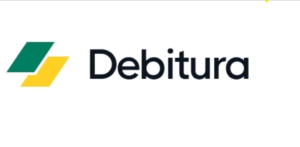Overview of setting-up a company or business in Nigeria
There are several types of companies that can be set up in Nigeria depending on the intended purpose of establishment. However, the most commonly used or established company in Nigeria for profit oriented commercial operations are Private or Public companies wherein the liability of each member is limited by shares.
Below is the various type of legal entities that can be set up in Nigeria:
i. Company Limited by Shares, which is divided into private company limited by shares and public company limited by shares;
ii. Unlimited Company; and
iii. Company Limited by Guarantee.
The table below shows some considerations to be borne in mind when choosing what type of company to set up.
| Type of Company | Advantages | Disadvantages |
| Private Company Limited by Shares | – Limitation of liability to the amount of unpaid allotted shares held by each shareholder. – A separate legal entity from that of the members, can own property, sue and be sued. – Greater control of the affairs of the company due to fewer members. | Restriction on the transfer of shares – the offer of the company’s shares cannot be made to the public via prospectus and is subject to the pre-emptive rights of existing shareholders (the company must first offer new shares to be issued to existing shareholders in proportion to their shareholding). – Membership cannot exceed fifty (50). – The shares cannot be listed on the Nigerian Stock Exchange. |
| Public Company Limited by Shares | – Limitation of liability to the amount of unpaid allotted shares held by each shareholder. – Shares can be issued to the public via prospectus and listed on the Nigerian Stock Exchange thus allowing the company to raise large amounts of capital. – Shares are freely transferable which provides liquidity for shareholders. – Separate legal entity from that of the members, can own property, sue and be sued. | Less control on the affairs of the company due to a larger number of members. – Potential for mismanagement and slow decision making due to large number of members. – Highly regulated, routinely requiring the consent of the Securities and Exchange Commission to carry out its activities. – More vulnerable to takeovers. |
| Unlimited Company | – Less regulated as they are not required to file copies of their accounts with the Corporate Affairs Commission (“CAC”). – Insolvency is less likely because the members or shareholders are jointly and severally responsible for the company’s assets. | – The liability of the shareholders is unlimited, therefore exposing shareholders to undetermined and potentially vast liability in the event that the company runs into debt. – More suitable for non-commercial concerns like political associations. |
| Company Limited by Guarantee | A separate legal entity from that of the members, can own property, sue and be sued. Enjoys exemption from taxes and duties on all income, provided that the income is not generated from trading activities (please note that the members are liable to pay personal taxes). Liability of members is limited to the amount which they guarantee in the Memorandum of the company to pay in the event of the company’s winding up. | Profits made by the company cannot be shared amongst its members. Usually incorporated for non-profit objectives. May however be incorporated for profit but will not enjoy tax exemptions in this case. Longer incorporation process as the CAC is required to refer the Memorandum of such companies to the Attorney-General of the Federation for approval. |
However, the most common vehicle that suits most business venture in Nigeria is a private limited liability company.
The basic requirements for the incorporation of a private limited liability company are outlined below:
- Approval and reservation (for a period of 60 days) of the proposed name by the Corporate Affairs Commission (“CAC”). It is advisable to present two alternate names (in order of preference) in the event that the original name choice is not available at the conclusion of an availability of name search at the CAC.
- Filing of documents at the CAC upon successful reservation of proposed company name. The documents that will be required for filing are as follows:
- Completed and executed Form CAC 1.1. To complete this form, the following details are required-:
a. Registered office address of the Company;
b. An e-mail address for the Company;
c. Authorized share capital for the Company (please note that, where there is foreign participation in the directorship of the company, the company should be incorporated with a minimum authorized share capital of Ten Million Naira (N10,000,000.00) in order to meet a pre-condition for obtaining a business permit);
d. Name, residential address, nationality, country of residence, ID Number and type, date of birth, gender, e-mail and phone number for each director; and
e. Name, address, registration number and phone number of company secretary;
f. Executed Memorandum and Articles of Association;
g. Copies of means of identification for each director;
h. Board resolution of corporate shareholders (if any); and
i. Proficiency certification in respect of the business to be engaged in, as it is in a professional field.
By Adeola Oyinlade & Co
Note: The content of this article is anticipated to provide a general guide to the subject matter. Specialist advice should be sought about your specific circumstances.
Adeola Oyinlade & Co provides help and offer advisory to both local and foreign clients in setting up a company in Nigeria at Corporate Affairs Commission (CAC).
Need help? Kindly contact us using the details below:
Email: info@adeolaoyinlade.com
Mobile: +234 803 826 7683 / +234 802 686 0247







